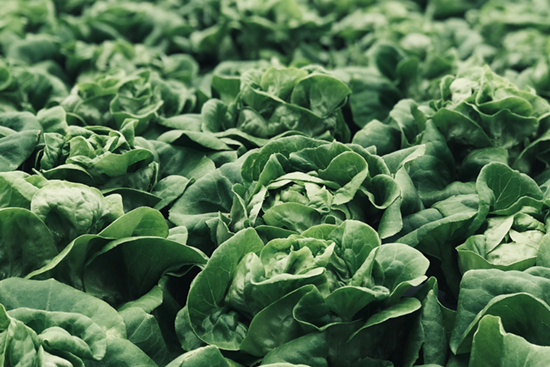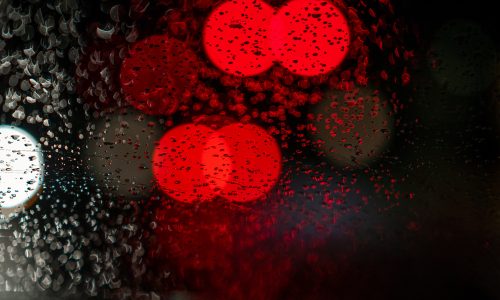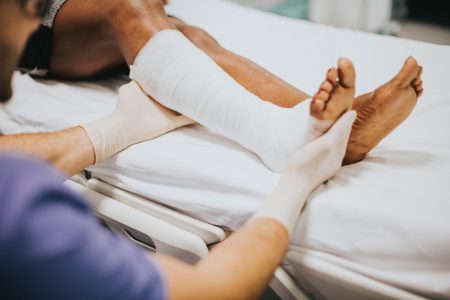
Spinach and Berries to Prevent Muscle Soreness
Michael Greger M.D. FACLM via Nutrition Facts – What are the effects of spinach and berries on oxidative stress, inflammation, and muscle soreness in athletes?
Higher fruit and vegetable consumption was “positively associated with muscle power” in adolescents, but they aren’t the ones who really need it. What about the consumption of fruits and vegetables and the risk of frailty in older adults? Researchers found that higher fruit and vegetable consumption was “associated with a lower short-term risk of frailty in a dose-response manner,” meaning more fruits or vegetables and less frailty. Those were observational studies, though, which, alone, can’t prove cause and effect. What happens when you put foods to the test?
As I discuss in my video Flashback Friday: Foods to Improve Athletic Performance and Recovery, there was “no positive influence of ingesting chia seed oil on human running performance,” but an effect was found for “spinach supplementation on exercise-induced oxidative stress.” Spinach supplementation? That just meant researchers gave some guys fresh, raw spinach leaves—one gram per kilo of body weight, which turned out to be about a quarter of a bunch a day—for two weeks and then had them run a half marathon. They found that “chronic daily oral supplementation of spinach”—like eating a salad—“has alleviating effects on known markers of oxidative stress and muscle damage…”
As you can see at 1:16 in my video, when you run a half marathon without supplementing with spinach, you get a big spike in oxidative stress and blood malondialdehyde levels that stay up for hours or even days later. In the spinach group, there isn’t much change before and after two weeks of spinach, but you can really see the difference after you put the body under pressure. After the rigors of a half marathon, your body, supplemented with spinach, is better able to deal with the stress.
What happens when you look at muscle damage, as measured by creatine kinase (CK) leakage from the muscles? (CK is an enzyme that should be in your muscles, not leaking out into your blood.) Researchers found that levels started at about 100 U/L and went up to 200 U/L right after the half marathon, two hours later. The next day is when you really feel that delayed onset-muscle soreness, though. Without spinach supplementation, CK levels reached 600 U/L the day after the half marathon before coming back down. But on spinach? You get a similar immediate post-race bump in CK leakage, but spinach really shines that next day: You don’t get the same next-day spike. So, for a competitive athlete, that quicker recovery may get you training harder again even sooner. The researchers attributed this to spinach’s anti-inflammatory effects.
As you can see at 2:36 in my video, the same effects were found with black currant juice. After some hardcore weight lifting, muscle damage indicators went up and stayed up, whereas they went up but came right back down when that same weight lifting was paired with drinking berries. These were just measures of a biomarker of muscle soreness, however. What about actual soreness?
If you look at the effects of tart cherry juice on recovery following prolonged, intermittent sprints in soccer players, you see the same kind of reduction in biomarkers of inflammation. But, more importantly, you see less resulting muscle soreness, which I show at 3:08 in my video. The soreness reported by the athletes in cherry group in the days following running those sprints was only about half of that in the placebo group. Researchers then measured maximum voluntary isometric contractions of the leg muscles. They understandably took a hit in the days after the intense workout, though not in the cherry group. The researchers concluded that participants who supplemented with a tart cherry concentrate “were able to maintain greater functional performance,” but that was in testing how high participants could jump vertically. They didn’t look at whether the athletes were able to play soccer any better, but a study on purple grape juice actually showed “an ergogenic effect in recreational runners by promoting increased time-to-exhaustion.” Participants ran on a treadmill, and the researchers measured how long they could go before collapsing. As you can see at 3:56 in my video, after a month of drinking either a grape Kool-Aid-type placebo control drink or real grape juice, there was no real change in performance in the placebo group, but those in the real grape group got a whopping 15 percent improvement, hanging on for an additional 12 minutes before reaching exhaustion.
These studies used juice, so the researchers could make matched placebo control drinks, but you can buy fresh Concord grapes or tart cherries that are fresh, frozen, or water-packed in a can. I mix them with oatmeal, cocoa, and mint leaves for a chocolate-covered-cherry-type sensation. You may want to try that for a few days before participating in your next big sporting event.
KEY TAKEAWAYS
- Observational studies have found that greater intake of fruits and vegetables is positively associated with muscle power in teens and a lower short-term risk of frailty in older adults.
- Although chia seed oil has no positive influence on running performance, researchers found that eating spinach each day (about a quarter bunch daily) had “alleviating effects on known markers of oxidative stress and muscle damage” in half-marathoners, compared with runners who did not supplement with spinach.
- Creatine kinase (CK) is an enzyme found in muscle that leaks into the blood when muscle has been damaged. When researchers measured the runners’ CK levels before, immediately after, and the day after the half marathon, they found that those who supplemented with spinach did not get the same next-day spike indicating muscle damage that those who did not take spinach experienced.
- For competitive athletes, this quicker recovery attributed to spinach’s anti-inflammatory effects may enable you to resume training more quickly and more intensively.
- Similar effects were found with black current juice’s effect on muscle soreness in weight-lifters.
- Tart cherry juice also results in reduction of biomarkers of inflammation, as well as less muscle soreness following prolonged, intermittent sprints in soccer players.
- A study with purple grapes showed that a month of drinking their juice resulted in a 15 percent improvement compared with those drinking a grape Kool-Aid-type placebo control. The real juice drinkers were able to run an additional 12 minutes on a treadmill before reaching exhaustion.
To read the original article click here.






